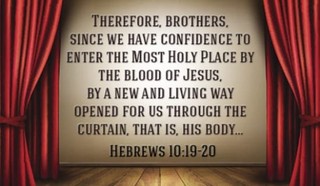- Recent Translations
- All Translations
Ebrei 10:26
Share
Settings
Ebrei 10:26 Meaning and Commentary
For if we sin wilfully
] Which is not to be understood of a single act of sin, but rather of a course of sinning; nor of sins of infirmity through temptation, or even of grosser acts of sin, but of voluntary ones; and not of all voluntary ones, or in which the will is engaged and concerned, but of such which are done on set purpose, resolutely and obstinately; and not of immoral practices, but of corrupt principles, and acting according to them; it intends a total apostasy from the truth, against light and evidence, joined with obstinacy.
After that we have received the knowledge of the truth;
either of Jesus Christ, or of the Scriptures, or of the Gospel, or of some particular doctrine, especially the principal one, salvation by Christ; of which there may be a notional knowledge, when there is no experimental knowledge; and which is received not into the heart, but into the head: and whereas the apostle speaks in the first person plural, we, this is used not so much with regard to himself, but others; that so what he delivered might come with greater weight upon them, and be more readily received by them; when they observed he entertained no hard thoughts or jealousies of them, which would greatly distress the minds of those that were truly gracious. Moreover, the apostles use this way of speaking, when they do not design themselves at all, but others, under the same visible profession of religion, and who belonged to the same community of believers; see ( 1 Peter 4:3 ) ( Titus 3:3 ) ( Ephesians 2:3 ) compared with ( Acts 22:3 ) ( 26:5 ) ( Philippians 3:6 ) . Besides, these words are only hypothetical, and do not prove that true believers could, or should, or do sin in this manner: to which may be added, that true believers are manifestly distinguished from these persons, ( Hebrews 10:38 Hebrews 10:39 ) ,
there remaineth no more sacrifice for sins;
meaning, not typical sacrifice; for though the daily sacrifice ought to have ceased at the death of Christ, yet it did not in fact until the destruction of Jerusalem; but the sacrifice of Christ, which will never be repeated; Christ will die no more; his blood will not be shed again, nor his sacrifice reiterated; nor will any other sacrifice be offered; there will be no other Saviour; there is no salvation in any other, nor any other name whereby we must be saved. These words have been wrongly made use of to prove that persons sinning after baptism are not to be restored to communion again upon repentance; and being understood of immoral actions wilfully committed, have given great distress to consciences burdened with the guilt of sin, committed after a profession of religion; but the true sense of the whole is this, that after men have embraced and professed the truths of the Gospel, and particularly this great truth of it, that Jesus Christ is the only Saviour of men by his blood and sacrifice; and yet after this, against all evidence, all the light and convictions of their own consciences, they wilfully deny this truth, and obstinately persist in the denial of it; seeing there is no more, no other sacrifice for sin, no other Saviour, nor any salvation in any other way, the case of these men must be desperate; there is no help for them, nor hope of them; for by this their sin they shut up against themselves, in principle and practice, the way of salvation, as follows.


